Vocabulary enhancement Normal Phonics Worksheets for Ages 4-5
14 filtered results
-
From - To
Enhance your child’s vocabulary and phonics skills with our engaging Normal Phonics Worksheets, specifically designed for ages 4-5. These worksheets provide a fun and interactive way to develop language abilities through activities that reinforce letter recognition, sound matching, and word formation. By integrating vibrant visuals and age-appropriate exercises, children will effortlessly expand their vocabulary and improve their phonetic understanding. Our printable resources ensure a seamless learning experience at home or in the classroom, making vocabulary building both enjoyable and effective. Empower your little learners with essential language skills today! Download our phonics worksheets and watch their confidence soar.


Rhyming Words: Assessment Worksheet
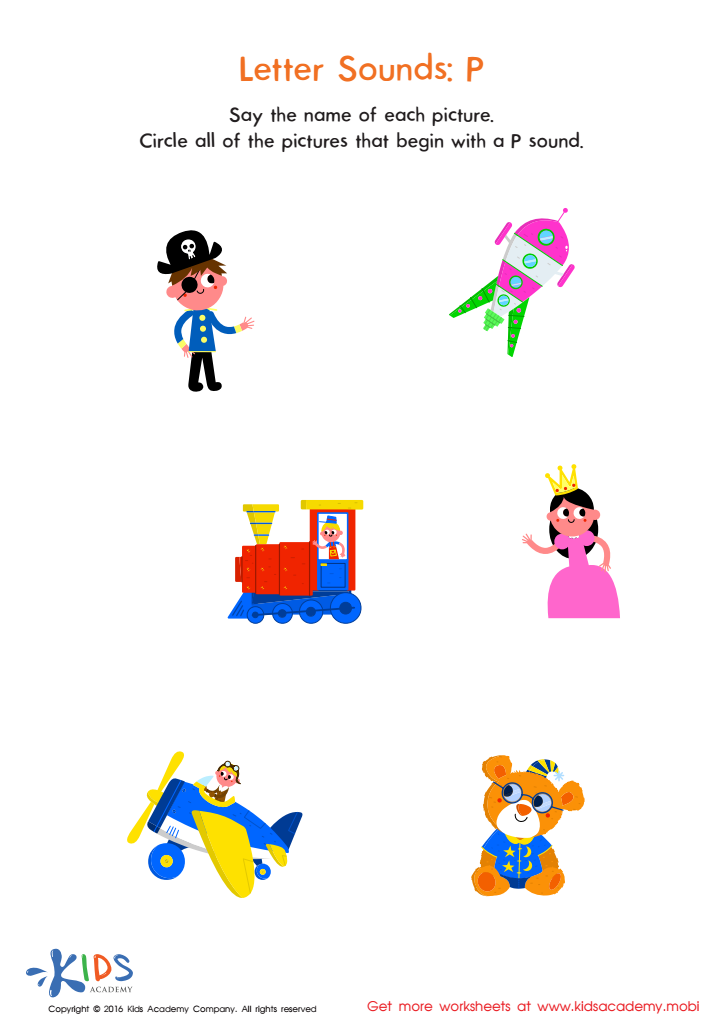

Letter P Sound Worksheet
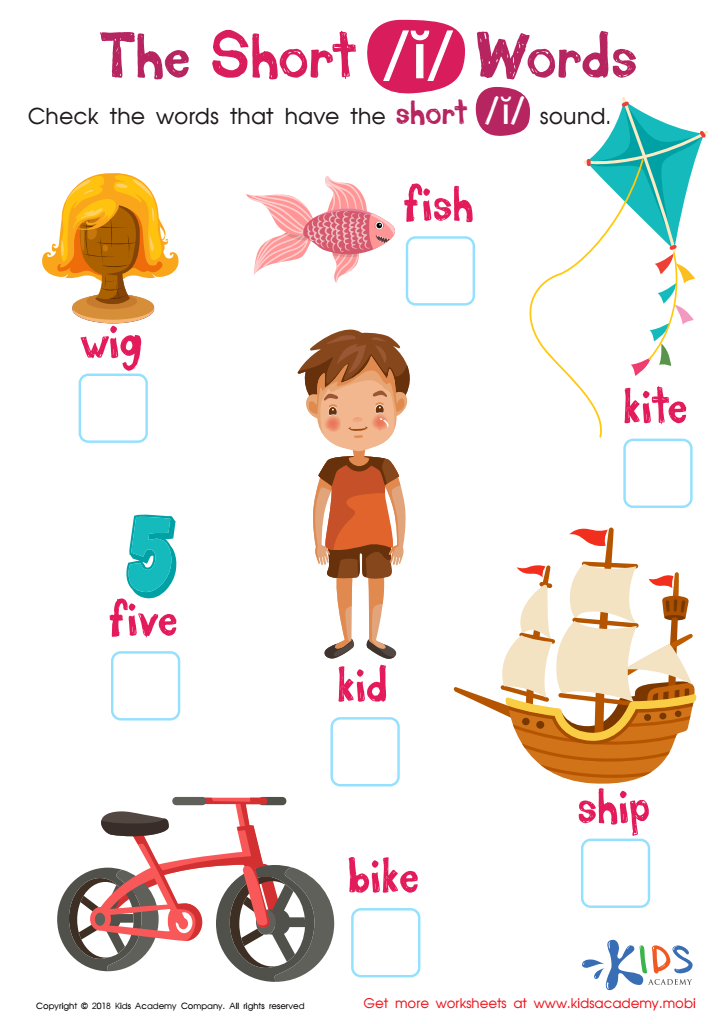

The Short I Words Reading Worksheet
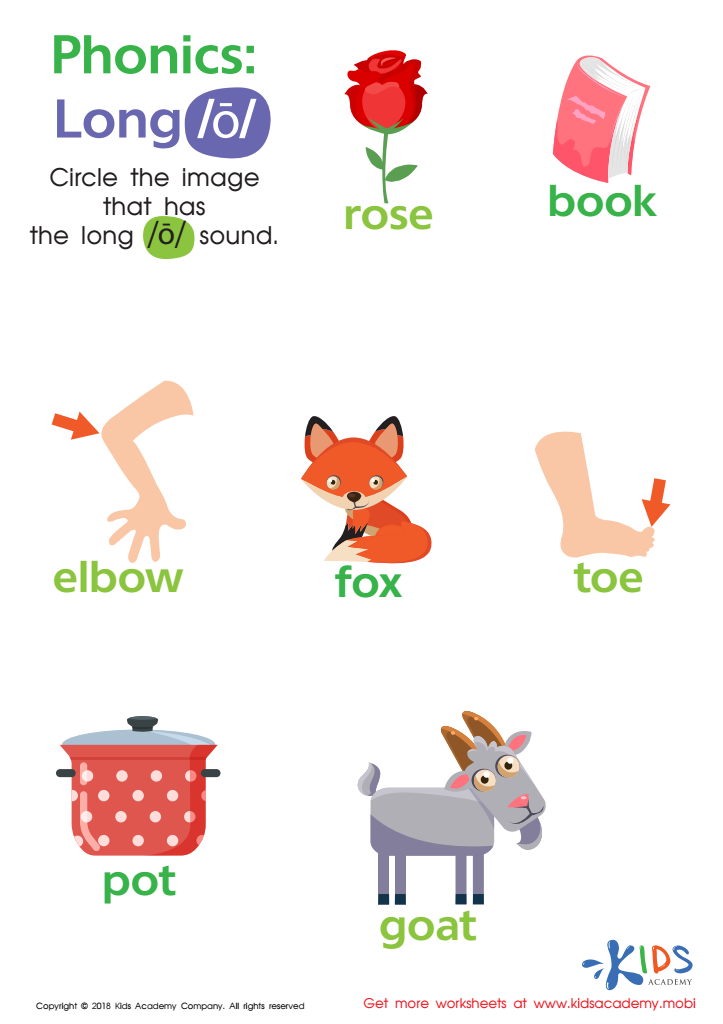

Phonics Long O Reading Worksheet
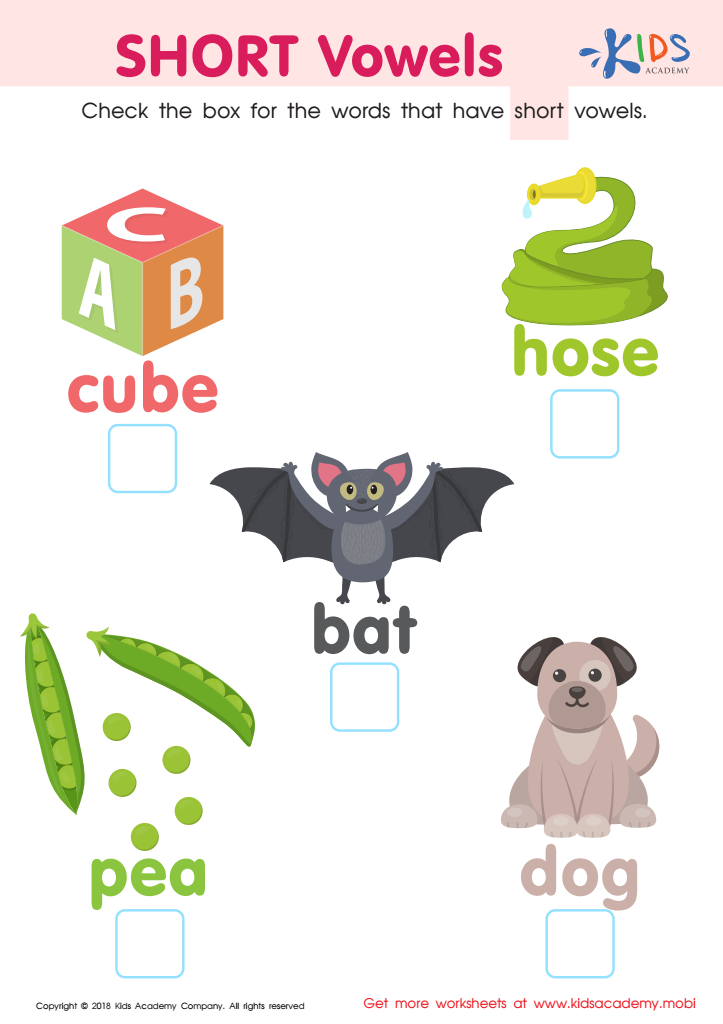

short vowels Worksheet


Rhyming Words Rhyming Worksheet
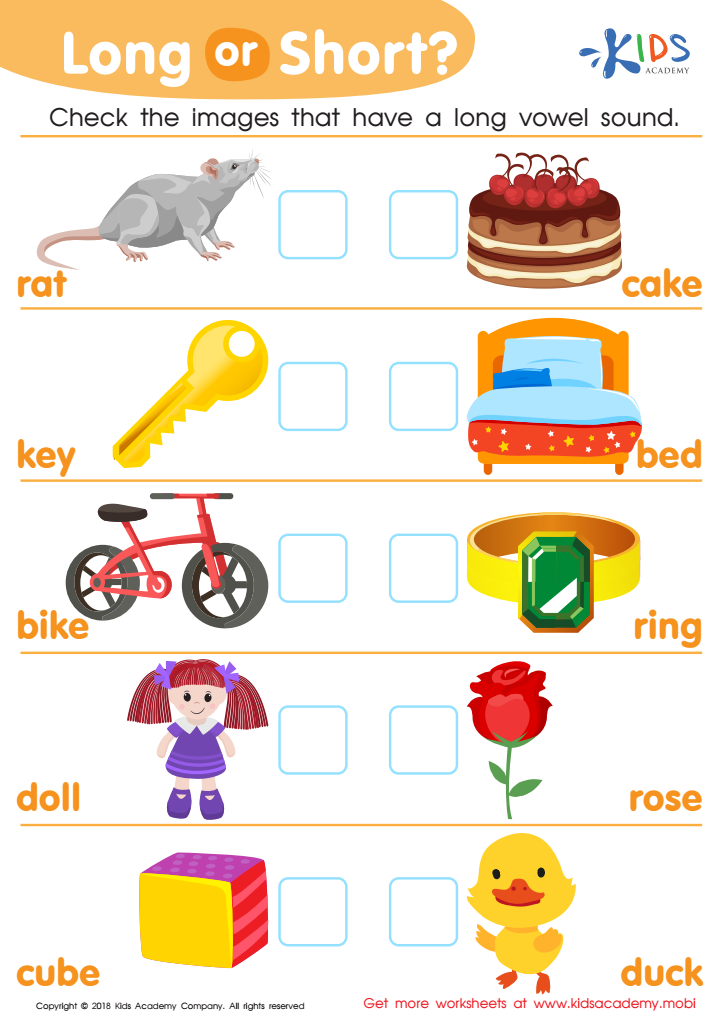

Long or Short Reading Worksheet


First Words: Picture Rhymes Worksheet
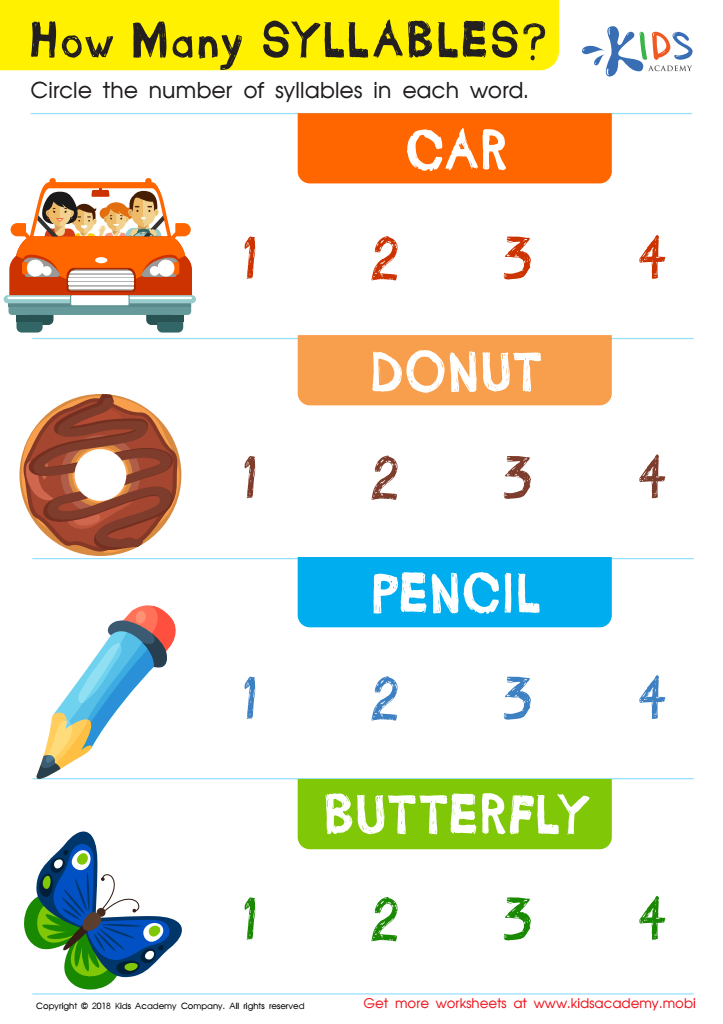

How Many Syllables? Worksheet
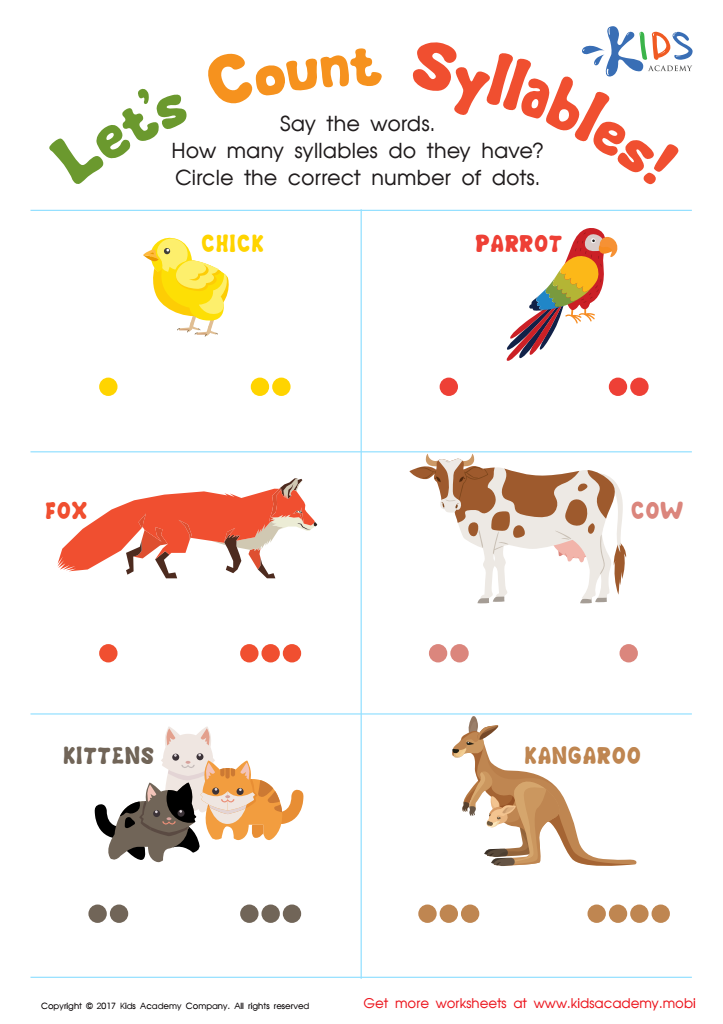

Lets Count Syllables Worksheet
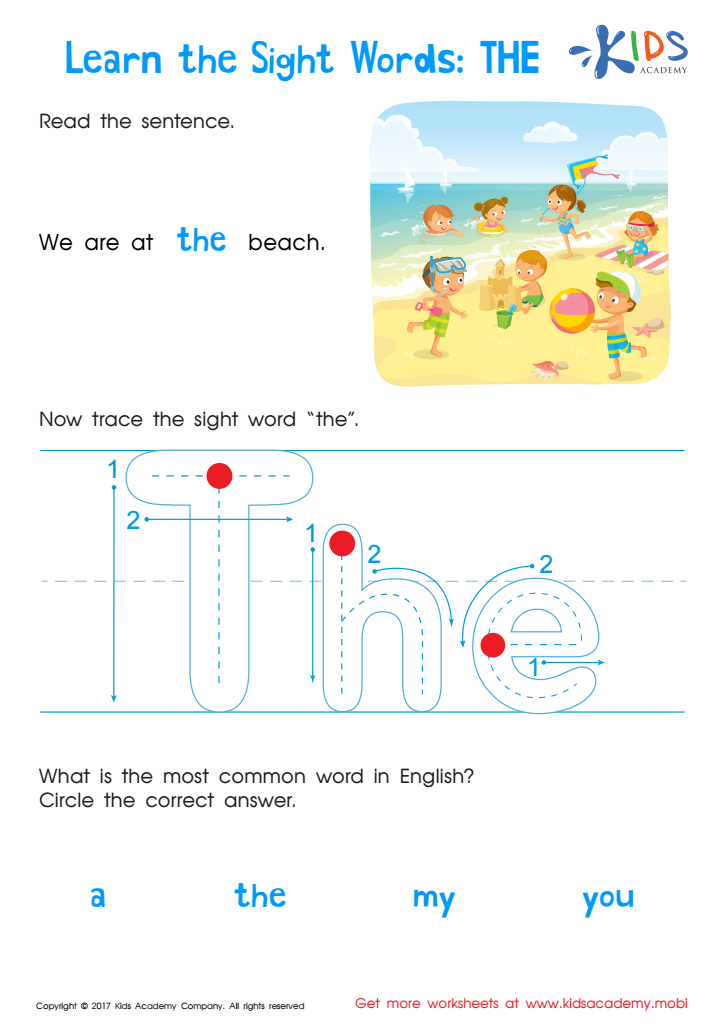

Sight Words: The Worksheet
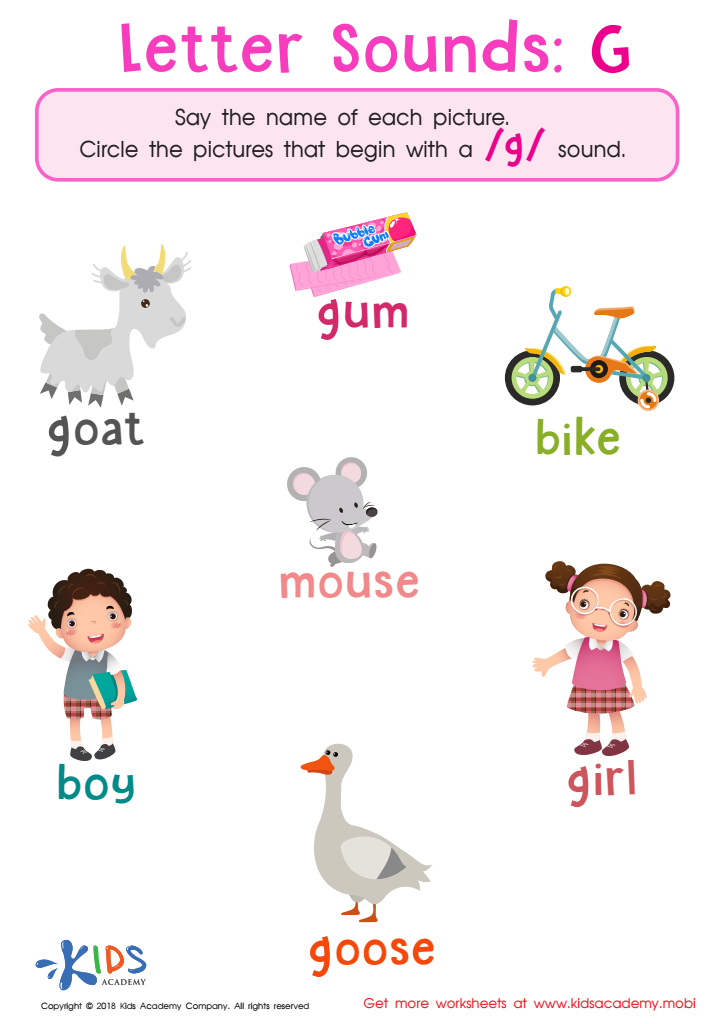

Letter G Sounds Worksheet
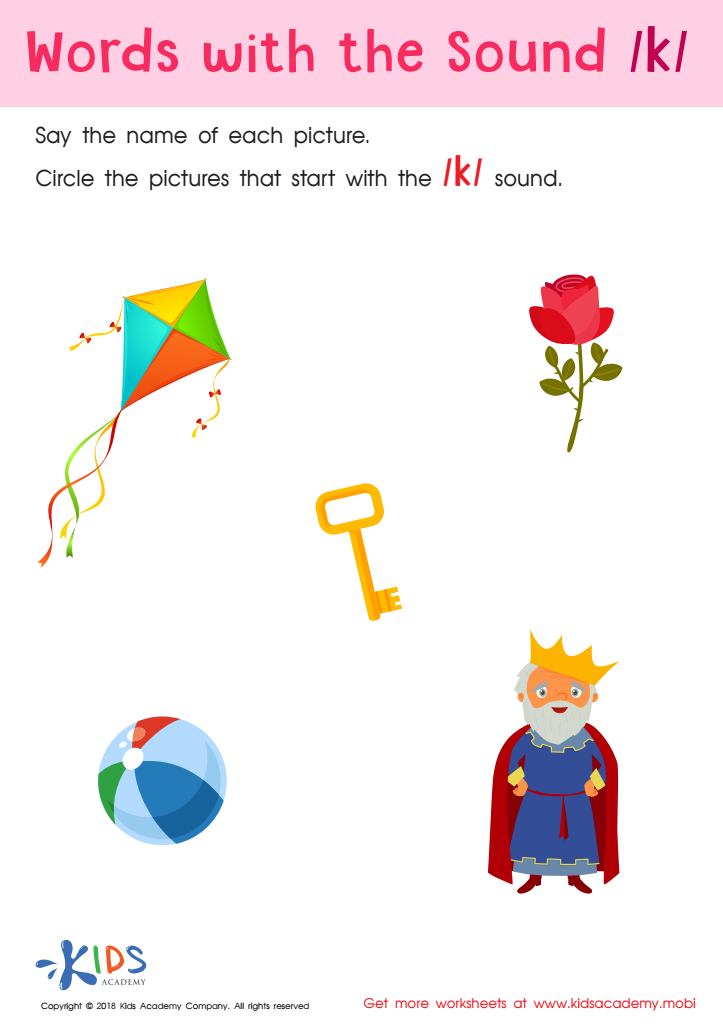

Words with sound k Reading Worksheet
Vocabulary enhancement through Normal Phonics for ages 4-5 is crucial for early childhood development. At this age, children are rapidly acquiring language skills, and a solid phonics foundation supports their ability to decode words and enhance their vocabulary. Phonics teaches children the relationship between letters and sounds, enabling them to read independently. This early literacy skill not only fosters confidence but also encourages a love for reading, which is essential for lifelong learning.
Supporting vocabulary development directly influences a child’s cognitive and social development. A rich vocabulary enhances comprehension abilities, enabling children to express their thoughts and feelings effectively. This can lead to improved communication skills, better academic performance, and stronger relationships with peers and adults.
Moreover, Normal Phonics cultivates critical thinking skills and helps children make connections between words and their meanings, paving the way for more sophisticated language use as they grow. By investing time and resources into vocabulary enhancement via phonics, parents and teachers are providing children with essential tools that will influence their educational journeys and future opportunities. In essence, this foundational stage shapes their identity as learners and communicators in an increasingly complex world.
 Assign to My Students
Assign to My Students















